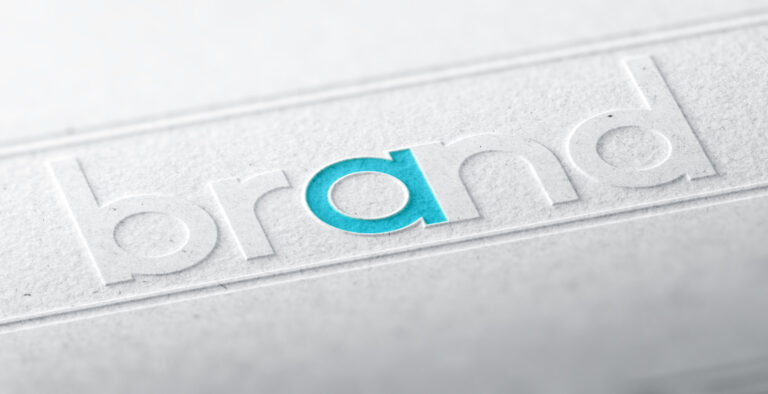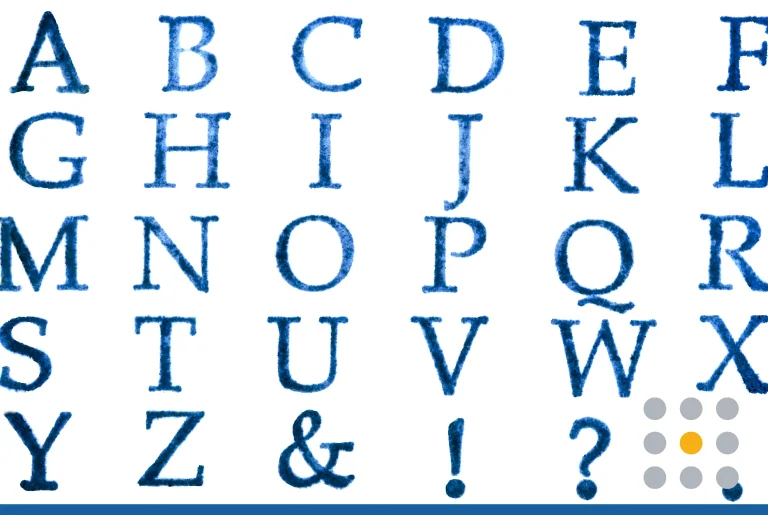In 2025, personal branding is no longer just for celebrities, CEOs, or social media influencers; it’s for everyone. Developing a strong and unique personal brand is the ticket that communicates your value to the world.
Getting noticed in any industry is harder now than ever before, due to intense global competition. Your personal brand efforts can help you stand out among the rest.
Major corporate brands such as Apple, Nike, or Starbucks spend millions creating strong brand identities. Why shouldn’t you invest in your own brand? After all, your career, reputation, and online presence are some of your most valuable assets.
In this article, we’ll break down what personal branding is, why personal branding is important, and how you can build an effective personal branding strategy in 2025.
- What Ιs Personal Branding?
- Why Personal Branding Is Important in 2025
- Key Elements of a Strong Personal Brand
- Steps to Create Your Personal Branding Strategy
- Real-World Thought Leaders & Influencers Who Nailed Personal Branding
- Common Mistakes in Personal Branding

What Ιs Personal Branding?
At its core, personal branding is how you market yourself. It’s the way you describe your expertise, demonstrate your personality, and communicate your value to your target audience.
A personal brand helps people understand who you are, what you stand for, and why they should work with you, follow you, or hire you.
Just like corporate brands build credibility and establish trust with customers, your own brand helps you build trust with colleagues, clients, and potential employers. In short, personal branding is the story people tell about you when you’re not in the room.
Putting Yourself Out There
Gary Vaynerchuk is an American entrepreneur and popular internet personality who has been pushing the importance of personal branding in business for years. Here is what he has to say on the subject:
“It’s important to build a personal brand because it’s the only thing you’re going to have. Your reputation online, and in the new business world is pretty much the game, so you’ve got to be a good person. You can’t hide anything, and more importantly, you’ve got to be out there at some level.”
Putting yourself out there and allowing people to interact with you is a major advantage in today’s business ecosystem.

Why Personal Branding Is Important in 2025
The digital world is louder than ever. More people are creating content, sharing experiences, and competing for the same jobs, clients, and speaking engagements. A strong personal brand is what makes you stand out.
According to FTI Consulting’s research, 92% of professionals say they are more likely to trust a company whose senior executives are active on social media. One of the many advantages of having a well-known personal brand is creating a sense of trust with your employees and customers.
Here are some other reasons why personal branding is so important in 2025:
- Professional success depends on visibility: Recruiters, clients, and customers often search your name online before making a decision. A strong digital footprint demonstrates credibility.
- Your personal brand helps you build trust: People don’t just want to buy services or hire skills; they want to connect with an authentic self.
- More opportunities come your way: From job opportunities to collaborations with other creators, your personal brand can attract opportunities without you chasing them.
- It communicates your core values: An effective personal brand shows what you believe in, making it easier for like-minded people and businesses to connect with you.
Personal branding in 2025 is about taking control of your reputation instead of letting others define it for you.

Key Elements of a Strong Personal Brand
Building your own brand means thinking about the pieces that make up how others perceive you.
Let’s break them down:
Personal Brand Statement
A personal brand statement is a concise description of who you are, what you do, and the value you provide. It’s your elevator pitch in one or two sentences.
- Example: “I help software developers build skills and find job opportunities through hands-on tutorials and career coaching.”
- Example: “As a digital marketing thought leader, I connect companies with their target audience by creating engaging, data-driven campaigns.”
Visual Identity
Your brand isn’t just words; it’s also what people see. From your professional headshot to your personal website design, your visual identity establishes trust and communicates consistency.
More and more people are developing personal logos to use on their official marketing materials and posts. If brands like McDonald’s and Coca-Cola can have iconic logo designs, why can’t you?
If you want to create a stunning logo for your personal brand, use FreeLogoServices‘ AI-powered platform to craft an amazing logo in just minutes.
Authentic Self
People connect with real humans, not polished robots. Sharing a bit of your personal life, fun personality, and core values makes your brand more relatable.
Oscar Wilde said it best:
“Be Yourself, Everyone Else is Already Taken.”
Content & Thought Leadership
Creating content on social media platforms, writing blogs, or speaking at conferences positions you as a thought leader. This builds credibility and demonstrates competence.
Professional Network
A strong personal brand helps you connect with your professional network, co-workers, and industry leaders. It opens the door to collaborations, mentorships, and more opportunities.

Steps to Create Your Personal Branding Strategy
Building a personal brand doesn’t happen overnight; it’s a process. Here’s a step-by-step personal branding strategy for 2025:
Step 1: Audit Your Current Personal Brand
Start with a quick search of your name online.
What comes up?
Does it align with your professional and personal goals? Your digital footprint is often the first impression you give, so make sure it reflects the brand you want to project.
Step 2: Define Your Professional & Personal Goals
Do you want more job opportunities? Clients for your business?
Invitations for speaking engagements? Clarify your goals, because your personal branding strategy should align with where you want to go.
Step 3: Write Your Personal Brand Statement
Think about how you want to describe yourself to your target audience. Use clear language that communicates your knowledge base and the benefits you provide. Look at personal brand statement examples for inspiration, but make yours authentic.
Step 4: Develop Your Skills & Knowledge
Your brand is only as strong as the work you produce. Keep learning, improving, and staying relevant in your industry. This demonstrates value and ensures your brand evolves with time.
Step 5: Build Your Online Presence
This will take a lot of hard work and won’t happen overnight. Persistence is highly important. Here are the main pillars you should focus on:
- Personal website: This is your digital home base where you control the content. Share your portfolio, blog posts, personal goals, and professional achievements.
- Social media presence: Use social media platforms strategically. LinkedIn builds credibility with co-workers and recruiters, Instagram shows your fun personality, Twitter/X demonstrates thought leadership, and TikTok connects with more people in creative ways.
- Social media tools: Use scheduling and analytics tools to maintain brand consistency and grow your audience.
Step 6: Create Content Consistently
An effective personal branding strategy includes creating content that demonstrates skills, shares personal stories, and communicates value. From LinkedIn posts to YouTube videos, content helps establish you as a thought leader.
When you’re first starting out, focus on being consistent and producing high-quality content, rather than just quantity. For small businesses, even posting just once a week on a consistent basis can have massive returns.
Step 7: Focus on Brand Consistency
Your tone, style, and message should be consistent across platforms. Whether someone sees your LinkedIn, a personal website, or a professional headshot, they should recognize the same authentic self.
Step 8: Connect with Others
Engage with co-workers, industry peers, and other creators. Comment on posts, share insights, and collaborate. Building relationships strengthens your reputation and expands your professional network.
Real-World Thought Leaders & Influencers Who Nailed Personal Branding
Sometimes the best way to understand effective personal branding is to look at people who have done it successfully. These thought leaders and influencers have built strong personal brands that not only communicate their authentic selves but also create opportunities, establish trust, and inspire millions.
Oprah Winfrey
Oprah’s personal brand helps her connect with more people because she stays consistent with her core values of authenticity and positivity, whether it’s through her talk shows, OWN network, or philanthropic efforts., Oprah’s personal brand helps her connect with more people because she stays consistent with her core values of authenticity and positivity.
Lesson: Your personal life and professional goals can blend together when you stay true to your core values.
Elon Musk
Elon Musk’s personal brand is synonymous with innovation, risk-taking, and futuristic vision. Through Tesla, SpaceX, and other ventures, Musk demonstrates thought leadership in the tech space. His unpredictable social media presence makes him relatable, even if his content is sometimes controversial.
Lesson: A strong personal brand doesn’t have to be polished; it just has to be authentic and consistent with your vision.
Gary Vaynerchuk
We’ve mentioned him earlier, but a list like this couldn’t be complete without Gary Vee. He built his brand around digital marketing, hustle culture, and entrepreneurship. He uses every major social media platform to create content that inspires, educates, and engages.
Lesson: Consistently producing content can have a snowball effect, helping grow your personal brand exponentially.
Michelle Obama
The former First Lady of the United States, Michelle Obama’s brand focuses on leadership, education, and empowerment. Her speaking engagements, books, and initiatives show how a personal brand helps you align your professional and personal goals with causes that matter.
She balances a professional presence with glimpses into her personal life, making her brand feel authentic and approachable.
Lesson: A personal brand is strongest when it communicates a clear sense of purpose and contributes value to a wider audience.
MrBeast
As one of the most influential social media influencers, MrBeast has built a personal brand around entertainment, generosity, and innovation. His fun personality, creative stunts, and philanthropy establish trust with millions of fans worldwide.
MrBeast backs up his claims with actions, setting up initiatives like #TeamWater, which helps bring clean drinking water to people all over the world.
Lesson: Your own brand can stand out by combining personality with value that benefits others.
Brené Brown
Author and researcher Brené Brown has built credibility by focusing on vulnerability, courage, and leadership. Through her TED Talks, books, and speaking engagements, she demonstrates how thought leadership comes from sharing authentic experiences. Her brand helps her connect with audiences on both personal and professional levels.
Lesson: Demonstrating vulnerability and sharing your personal story can be a powerful way to build trust and establish yourself as a thought leader.
Satya Nadella
Microsoft’s CEO, Satya Nadella, transformed his leadership style into a personal brand of empathy, inclusivity, and innovation. His speeches and interviews all consistently communicate his focus on teamwork, personal goals, and corporate responsibility.
Lesson: Even in corporate roles, building a personal brand that reflects your authentic self and core values strengthens your professional success.
What We Can Learn From These Examples
- Consistency is key: A personal brand must stay consistent, whether you’re Elon Musk tweeting at midnight or Oprah giving a keynote..
- Authenticity wins: Every thought leader above demonstrates their authentic self, which is why their personal brands resonate.
- Your personal brand helps you stand out: Each of these individuals communicates their expertise and values in ways that align with their audience.
- Effective personal branding creates more opportunities: From speaking engagements to global influence, their personal brands open doors.

Common Mistakes in Personal Branding
Even though personal branding sounds straightforward, many people stumble. Here are mistakes to avoid:
- Lack of brand consistency: Your message and visuals differ across platforms.
- Focusing only on personal life: Share relatable moments, but balance them with professional value.
- Not updating your current personal brand: Industries evolve, and so should your personal brand.
- Trying to be someone else: Authenticity is critical. Copying other creators won’t build trust.
- Neglecting your digital footprint: Old content or unprofessional posts can hurt your reputation.
Conclusion
In 2025, your personal brand is the bridge between your professional goals and the audience you want to reach. We know that putting yourself out there can be daunting, but to get ahead in today’s competitive business world, crafting a personal brand that people can connect with is a must.
Your brand is your story. Tell it with authenticity, communicate it with consistency, and demonstrate it through action.
With the right personal branding strategy, you’ll not only stand out, but you’ll also open the door to more opportunities, stronger relationships, and long-term professional success.
Need help creating a professional logo for your portfolio, or a stunning new personal website? FreeLogoServices offers a wide range of marketing tools to help elevate your personal brand, from logo makers to DIY website builders and personalized merchandise. Get started today!
FREQUENTLY ASKED QUESTIONS
What is a personal brand statement?
A personal brand statement is a short description that communicates who you are, what you do, and the value you bring. It’s like a tagline for your career.
How do I build credibility with my personal brand?
Share valuable content, demonstrate skills, and maintain brand consistency across platforms. Engaging with your professional network also builds trust.
Why is personal branding important for job opportunities?
Recruiters often search your name online. A well-crafted personal brand helps you stand out, demonstrates your skills, and communicates why you’re the right person for the job.
Do I need a personal website for my brand?
Yes, a personal website acts as your digital home base. Unlike social media platforms, you control the content, design, and message.
How do social media influencers use personal branding?
They create a consistent visual identity, share personal life stories to establish trust, and connect with their audience by demonstrating core values and fun personalities.
What’s the difference between corporate brands and personal brands?
Corporate brands market a company, while personal brands focus on individuals. Both require brand consistency, a clear target audience, and effective communication.
How often should I update my personal branding strategy?
Review your current personal brand at least once a year to make sure it aligns with your professional and personal goals.
Do I need to share my personal life online?
Not everything, but showing some of your authentic self and fun personality helps people connect with you on a human level.



